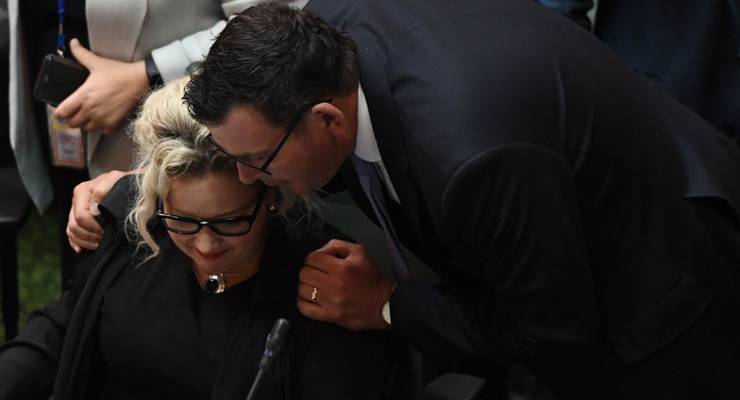
Back in September, Quadrant writer Geoffrey Luck decided somebody had to say it. “LGBTQIA people are not only not normal, they are not natural,” Luck wrote, repeating something that many people have said, thought, and written, over hundreds of years. Those supporting a Yes vote in the marriage survey, he added, were part of a “totalitarian movement”.
Even at the point of greatest tension and conflict, as former prime ministers make their last ditch interventions and MPs filibuster through the night, advocates on both sides of Victoria’s assisted dying debate say the hugely consequential proposal has been largely absent of this sort of vitriol demonstrated during national marriage equality debate. It passed the lower house this morning 47-37 after a marathon overnight sitting, and will now be debated in the upper house.
One staffer who works for a pro-euthanasia MP in NSW — where new laws are also being debated — told Crikey they are inundated with fury over issues like marriage equality and the Safe Schools program (which has already been dropped in the state) while objections to euthanasia are not accompanied by the same “fire and brimstone shit”. Various supporters of the Victorian bill said they had not seen other conservative talking points about identity politics, free speech, and “cultural Marxism” spill over into the debate.
Some explain the difference by pointing to the political difficulties associated with attacking the sick, generally older faces of the assisted dying campaign.
“I think we, on the no side, are more careful and empathetic in the [euthanasia debate] than the same-sex marriage one,” Bioethics Professor Margaret Somerville told Crikey. “Especially as those on the yes side of the [euthanasia] debate base their view on terrible personal experiences, and we all have a common goal of the relief of suffering. We just disagree what are and are not ethical ways to do that.”
On top of this, there are structural issues at play. Euthanasia remains a state issue, unable to attract the same broad attention of marriage equality or Safe Schools. The current debate is also playing out in Victoria which, a number of advocates noted, generally sits to the left of Australia’s political centre.
While the marriage equality survey was spawned by internal brawls in the Coalition, the Victorian bill is the result of two significant consultation processes and has the backing of the government.
Further, the lines of battle on euthanasia are complicated by a strong left critique and division within disability advocacy circles.
Yet the major roadblock to assisted dying laws in Australia — like same-sex marriage — is the opposition of religious and conservative groups, and another potential explanation for the less fractious Victorian debate is that groups have been tied-up in the marriage survey.
Reached by phone earlier this week, Victorian director of the Australian Christian Lobby Dan Flynn denied his organisation had been forced to split its resources. The director of media and communications at the Catholic Archdiocese of Melbourne, Shane Healy, told Crikey the Church would not have campaigned any harder against the euthanasia bill if there had not been any marriage survey. The Church sent a pastoral letter to at least a quarter of a million parishioners last week, asking them to “pray” that the bill is defeated.
They’re doing more than just praying, according to euthanasia advocate and Victorian upper house MP Fiona Patten, who said religious figures were playing a role in “intense” lobbying of key Labor and Coalition MPs.
“I’m not seeing men in long black dresses cavorting down the corridors of parliament, this is being done behind the scenes,” she said.
The fact that parliament rather than the public will decide the fate of the Victorian euthanasia proposal also partially explains why the debate has been more contained, with the sledges and slights being delivered directly to MPs behind closed doors — and in erroneously directed text messages.







Crikey is committed to hosting lively discussions. Help us keep the conversation useful, interesting and welcoming. We aim to publish comments quickly in the interest of promoting robust conversation, but we’re a small team and we deploy filters to protect against legal risk. Occasionally your comment may be held up while we review, but we’re working as fast as we can to keep the conversation rolling.
The Crikey comment section is members-only content. Please subscribe to leave a comment.
The Crikey comment section is members-only content. Please login to leave a comment.